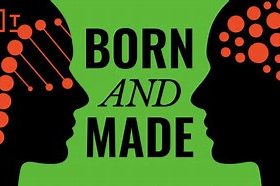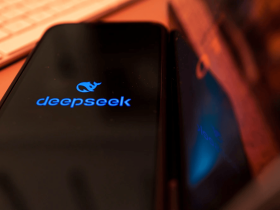The latest podcast from Cybernews is a nostalgia trip dedicated to our ever-changing digital lives and the possibility of clawing back human agency from powerful algorithms.
Chet Haase, a Google engineer, wrote a joke back in 2017:
A machine learning algorithm walks into a bar. The bartender asks, ‘What will you have?’ The algorithm says, ‘What’s everyone else having?’
In algorithmic culture, the right choice is always what the majority of others have already chosen. There’s this pervasive sense of sameness, a sort of “international harmonization of tastes.”
Do you remember the early years of social media? If you logged into Facebook, Instagram, or Twitter back then, you would have seen content in chronological order. It wasn’t exactly convenient as there were a lot of posts to scroll through – but at least you saw everything from the accounts you were following.
Alas, the Zuckerbergs of the world soon saw – or maybe that was the plan all along – that they needed to increase the time people spent on social media in order to show them more ads and get more cash from advertisers.
The more time you spend on an app, the more data you produce, the more easily you can be tracked, and the more efficiently your attention can be sold to advertisers. And the algorithm makes sure the process is as smooth and as profitable as possible.
What is an algorithm? Well, it’s a supposedly neutral method to arrive at a desired conclusion, usually without human decision-making – be it a Sumerian diagram to divide grains equally or an Instagram feed determining what you see first when you enter the platform.
In other words, an algorithm is a procedure to solve problems – or whatever is defined as a problem. The thing is, though, owners of online platforms now think that the problem is not making enough money.
Now, instead of you curating your experiences online yourself, an algorithm curates them for you. Human gatekeepers like editors, critics, or DJs have been replaced with algorithmic gatekeepers.
Again, maybe this is actually convenient because there’s just so much stuff online that it’s impossible to check out everything.
Sure, but neither should “liking” a, say, Rolling Stones-related post mean that we should keep seeing posts related to the band because the algorithm decided that’s what I’ll engage with. In real life, not every interaction shapes our choices forever.
In his new book called Filterworld: how Algorithm Flattened Culture, Kyle Chayka writes: “Rather than having this neat, ordered feed, you have this feed that’s constantly trying to guess what you’re going to click on, what you’re going to read, what you’re going to watch or listen to.”
Algorithms will do everything to keep you hooked for as long as possible, in other words. But is this active participation in so-called digital town hall meetings, or rather passive, docile clicking on things we’re not even surprised to see? Just think about it – maybe us sitting down to watch some generic crap on Netflix with some lo-fi hogwash in the background and a smartphone to scroll through at the same time is precisely the goal here?
Doesn’t our natural human curiosity suffer? Is predictive analytics actually insulting to our ability to curate our digital – and not only digital – surroundings and take away agency from us?
There’s also a possibility that a vengeful social media platform owner like the man-child Elon Musk could deplatform certain individuals or topics. This happened when he was ridiculed by Ukrainians for favoring negotiations with Russia: many activists were shadowbanned.
Not all is lost, though. We can fight back and regain the ability to curate our own lives. Besides, the internet seems to be moving back towards decentralization and shaking off the dominance of the few Big Tech platforms.
©️ Cybernews
































Leave a Reply